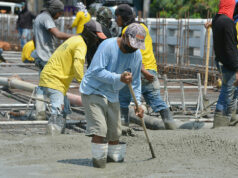Sweden’s AAK seeking sustainability in coco oil supply
SWEDEN’s AarhusKarlshamn (AAK) said it plans to work with coconut farmers to guarantee quality and supply for its fats and oils facility in Batangas.
AAK Philippines President Michael Skriver said that the company hopes to improve the sustainability of coconut oil production in the Philippines.
“Instead of paying at the harbor for a high price, we go back to those who actually do the work and pay them the same price,” he added.
In exchange, the farmers will undertake to increase the quality of their harvest and continue to collaborate with AAK.
“We don’t do this to be philanthropic. We do this for business. The best way to develop anything is for business to have a steady income.”
AAK blends oil and fats to produce “high-value” ingredients for food and personal care products.
“We don’t own any plantations anywhere and we don’t plan to but we work a lot on those with those who have plantations,” Mr. Skriver said.
In Africa, the company built buying stations to reach out to suppliers.
Mr. Skriver added that AAK also organized these women in groups of 10 to function as small companies and helped these groups set up bank accounts.
“If you go around looking at sustainability and traceability, the case is we have been leading in terms of sourcing. We have been doing this but we aren’t the only ones who are supposed to do it. So we will be educating them,” Mr. Skriver said.
“We want to teach them how to do it faster, how to have the right machinery and observe sanitary practices because food safety is important.”
He said younger consumers between 15 to 35 are becoming more socially conscious when it comes to buying goods.
“They check where you buy your raw materials, and if it is sustainable,” he said. “Younger consumers are also much more eager to know what is going on and they also want to see if companies support the community,” Mr. Skriver said.
“We will buy more if we can ensure the product is traceable, organic, certified. That’s the trend, that’s where we’re going.”
AAK broke ground last week on a 3,000 square meter (sq.m.) site in Batangas.
The plant is expected to be operational by early next year.
A second and larger facility is expected to take up some 5,000 sq.m. and will be built later.
While the first plant’s output will serve the domestic market initially, the eventual plan is to export.
“The factories will need a lot of coconut [oil]. In US, in Europe, they will need coconut [oil. The big one in China, they also need coconut [oil],” Mr. Skriver said.
“If we can make sure that it’s consistent high quality, competitive in price and we know the supply chain, and it’s been done right and food safety’s high, of course we want to buy it,” he added. — Anna Gabriela A. Mogato



